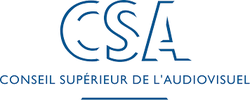Feb. 14, 2024
Thesaurus : 02. Cour de cassation
► Référence complète : Cass. Com., 14 février 2024, n° 22-10.472, Bloomberg
____
________

Nov. 1, 2020
Publications

This working paper served as a basis for an interview organized by Olivia Dufour in French in Actu-juridiques-Lextenso on 11st of January 2021.
Aug. 14, 2020
Newsletter MAFR - Law, Compliance, Regulation

Full reference: Frison-Roche, M.-A., Is Regulating Hate and Infox a legal obligation imposed to the Digital Enterprises or the expression of their free will to contribute to Democracy?, Newsletter MAFR - Law, Compliance, Regulation, 14th of August 2020
Read, by freely subscribing, other news in the Newsletter MAFR - Law, Compliance, Regulation
Summary of the news
Internet permits to access to expanded knowledge but also make easier the broadcasting of fake news and hate speeches. Unfortunately, public powers cannot know who broadcast these fake news and hate speeches and are so not able to fight efficiently against this. A solution would be to expect from digital firms that they find a way to contain these fake news and hate speeches that they structurally contribute to diffuse.
Digital firms already do that and especially Facebook which plans to sensibilize its American users to 2020 presidential elections. However, digital firms explain that if they fight against fake news and hate speeches, it is only because of its Corporate Social Responsibility (CSR). But, even if it is a calculus to get a better reputation and avoid boycott actions, this remains a willingness of the firm which is therefore neither forced to succeed, nor even to act.
The solution proposed by Compliance Law is to make of this effort a legal obligation by internalizing in crucial operators (digital firms) the "monumental goal" to fight against fake news and hate speeches so that digital companies are required to act and that they are supervised by public authorities in this task. The forthcoming law about digital services will impose to digital firms Ex Ante obligations while the law of 22 of December 2018 related to the fight against information manipulation already forces platforms operators a legal obligation to "cooperate" in the fight against fake news.
To go further, read :
- Frison-Roche, M.-A., When Facebook "Invite" Each Internet User to Act Against COVID-19 by Redirecting Him or Her Towards Public Information Center, Is It by Legal Obligation (Compliance) or by Corporate Social Responsibility (CSR)? With Which Consequences?, working paper, 2020
- Frison-Roche, M.-A., Having a Good Behavior in the Digital Space, working paper, 2020
July 15, 2020
Thesaurus : Soft Law

Reference complète : Conseil Supérieur de l'Audiovisuel (CSA), Bilan Infox, 2019.
Ce rapport sera bientôt aussi disponible en anglais.
Dec. 24, 2019
MAFR TV : MAFR TV - case

Watch the video commenting on the decision of the Commission des sanctions of the Autorité des marchés financiers - AMF (French Financial Market Authority Sanctions Commission).
Read the decision.
_______________
In 2015, a document supposedly emanating from the Vinci company reached the Bloomberg media announcing unexpected catastrophic results. The two journalists who received it immediately published it without checking anything, the Vinci listed shares losing more than 18%. It was a rude forgery, which a basic check would have established, a check which the journalists had not done.
4 years later, the Bloomerg company is punished for the breach to "disseminate false information" on the financial market, by a decision of the Sanctions Commission of the Autorité des Marchés Financiers (French Financial Markets Authority) of December 11, 2019.
The company being sued argued that it was up to journalists to be accountable and not to itself, because on the contrary the firm had implemented both detection software and a code of conduct, even though there was no legal rule constraining it. In consequence, it would not possible to pursue it.
But the AMF Sanctions Commission stresses that, independently of this, it is a general rule of ethics for journalists that obliges them to verify the authenticity of the documents they publish, which they did not, whereas an elementary check would have allowed them to measure that it is a rude forgery.
In addition, the Sanctions Commission refers to the European Regulation on market abuses which in its article 21 targets the special status to be reserved for press freedom and the special status of journalists, but associates this ethical obligation to verify documents . However, the Sanctions Commission notes that this obligation, which was targeted by both the journalists' ethics and the reference text of Financial Law, was completely ignored by the two journalists. It is therefore up to the press agency to be accountable and to be punished.
However, the media entreprise maintained that the balance between the principle of freedom of the press and the principle of freedom of opinion on the one hand and the principle of the protection of the financial market and of investors against false information disseminated requires an interpretation of the European Union Law, which must oblige the Sanctions Commission to ask a preliminary question to the Court of Justice of the European Union.
The Sanctions Commission dismisses this request because it considers that the European texts are "clear", which allows the Sanctions Commission to interpret them itself. And precisely the European Regulation on market abuse in its article 21 provides for the exception in favor of the press and journalists but compels them to respect their ethics, in particular the verification of the authenticity of documents. In this case, they did nothing. They are clearly the authors of a breach attributable to the company.
________
In a less clear case, one could consider that this balance between two principles, both of public interest, is delicate and that an interpretation by the Court of Justice would always be useful.
Indeed and more fundamentally, does Financial Law remain an autonomous Law, putting first the objective of the preservation of the integration of the financial market and the protection of investors or is it the advanced point of an Information Law protecting everyone against the action of any "influencer" (category to which Bloomberg belongs) consisting in disseminating inaccurate information (notion of "misinformation")?
And that is not so "clear" ....
_____________________